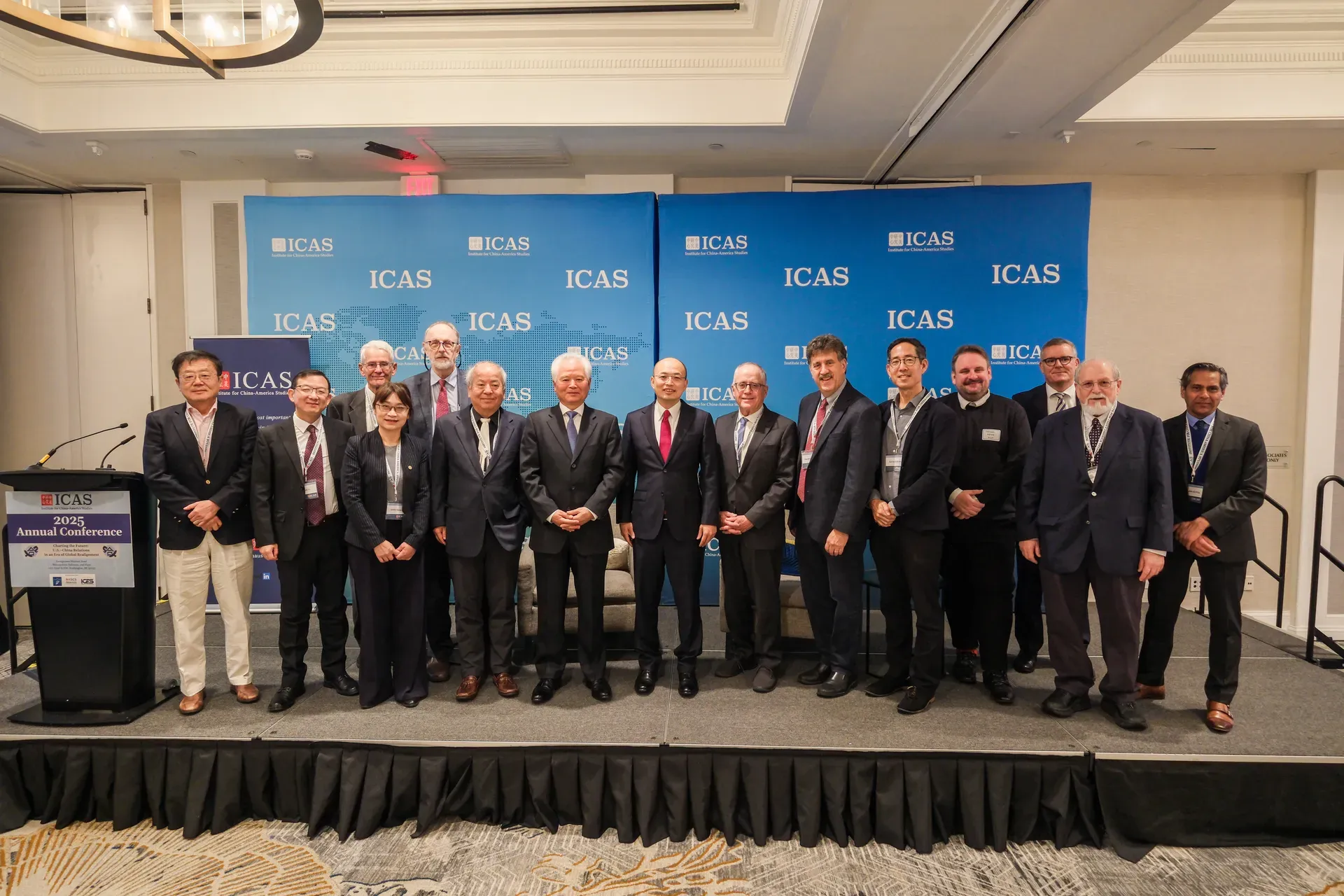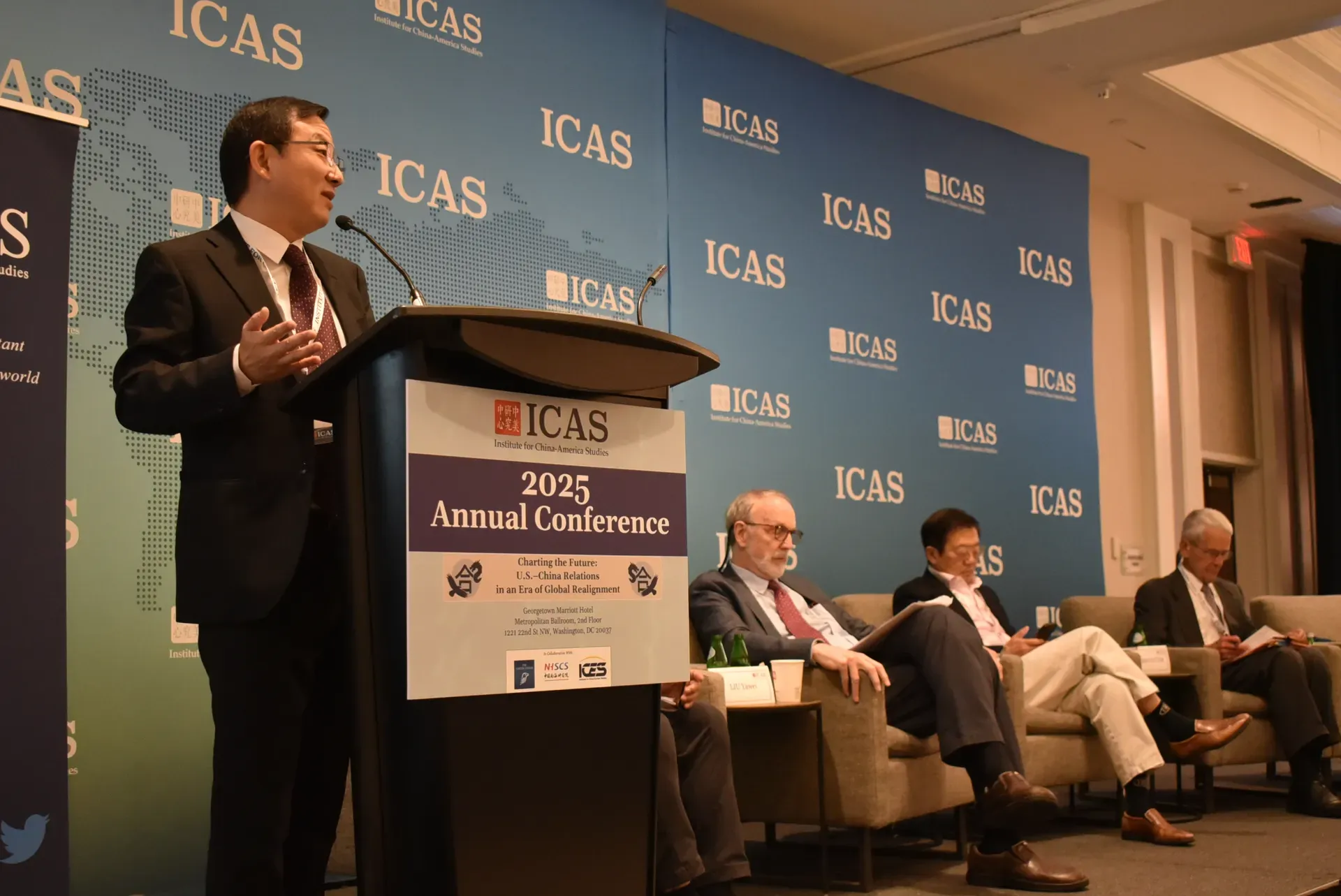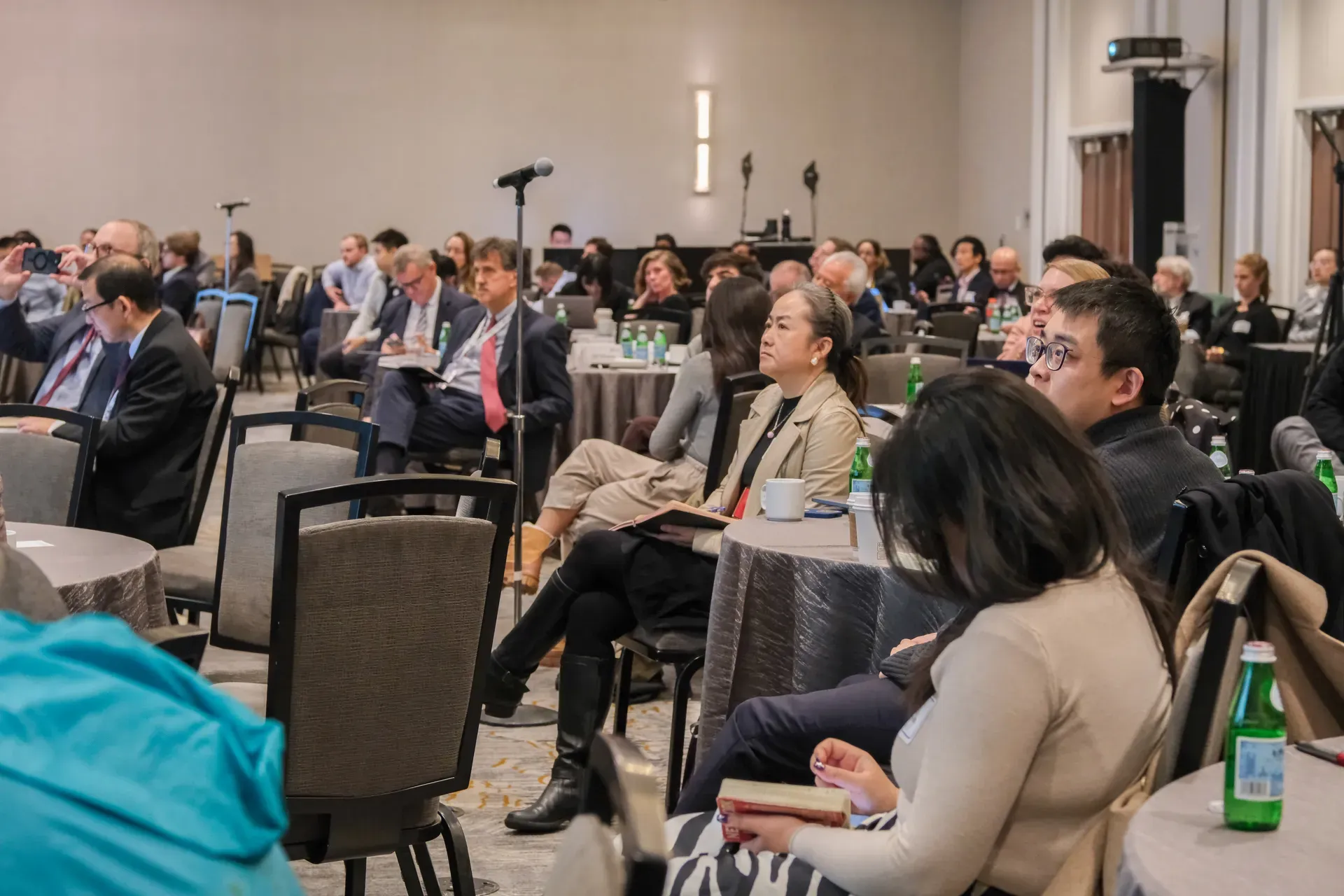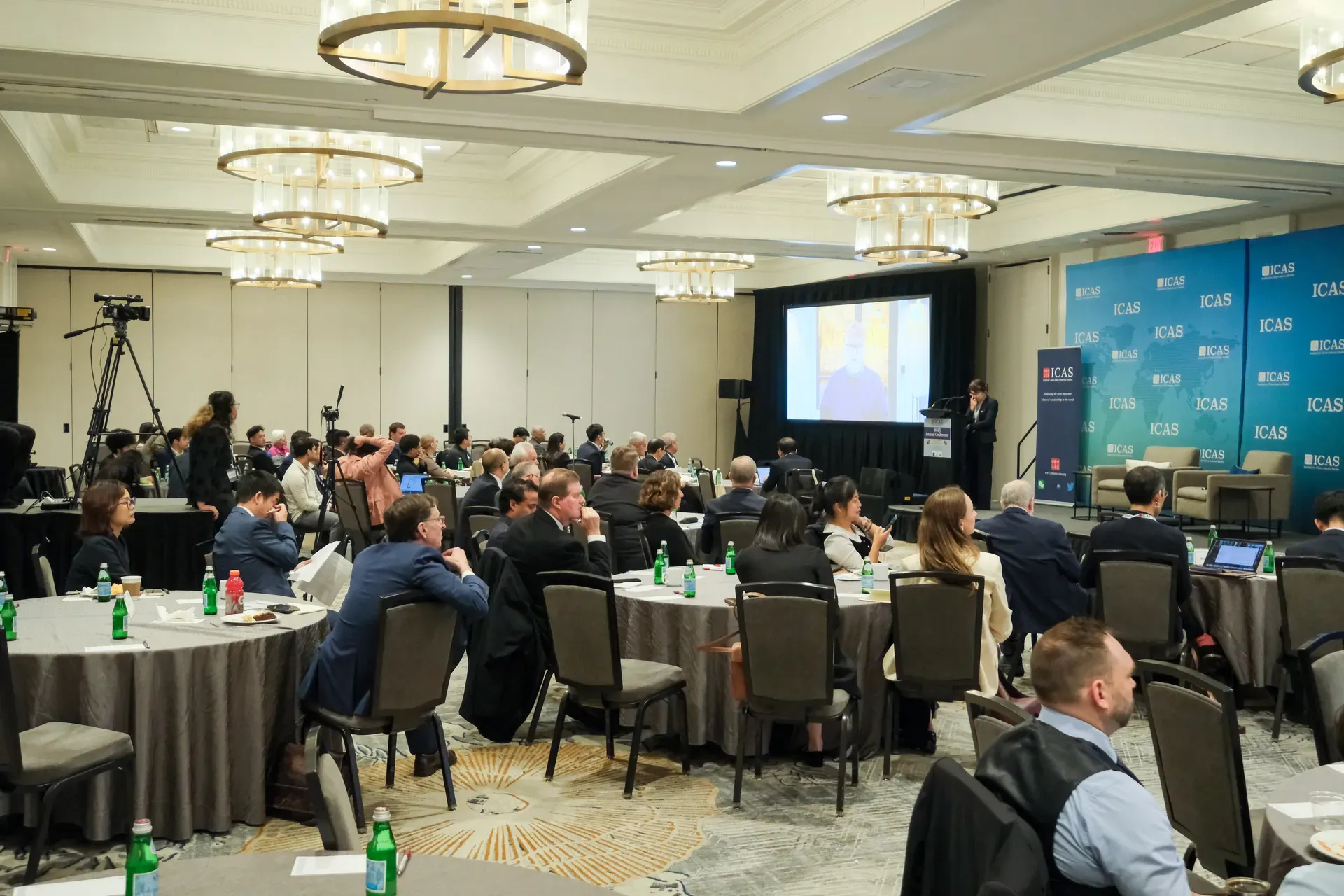2025 Annual Conference of Institute for China-America Studies “Charting the Future: US-China relations in an Era of Global Realignment”
Hosted by Institute for China-America Studies (ICAS); co-hosted with Institute for China- Europe Studies (ICES), The Carter Center and National Institute for South China Sea Studies (NISCSS)
October 30, 2025

Source: ICAS 2025 Annual Conference Speaker Group Photo
On October 30, 2025, ICES co-organised the 2025 ICAS Annual Conference in Washington, D.C., together with the Carter Center and the National Institute for South China Sea Studies. The event examined U.S.-China strategic competition, global conflict, and the future of fragmentation in trade, technology, and international governance.
The event featured four sessions:
ICES Executive Director YANG Li participated in Panel 1: U.S.-China Strategic Competition and
Global Conflict. The following is a brief recap of Panel 1.
The first panel of the ICAS 2025 Annual Conference featured four senior U.S. and Chinese academic
and think tank specialists who spoke of the elements and underlying drivers of competition in Sino-American
relations. There was a consensus among the panelists that the bilateral relationship continues
to remain at a difficult juncture, notwithstanding the short-term stabilization afforded by the
recent Xi-Trump leaders meeting in Busan, South Korea. The structural, ideological, economic and
geopolitical dimensions of the challenge in relations remain unchanged. The return of Donald Trump
to the presidency has injected an added degree of instability and capriciousness to bilateral ties
and to global order. On the one hand, President Trump is one of the most powerful presidents that
we are witnessing in our lifetimes. On the other hand, the U.S. is suffering a major loss of global
influence and a weakening of its alliance system, given Trump’s disrespect for international law
and his tendency to treat allies and adversaries alike when it comes to tariffs and sanctions.
The net effect has been to somewhat transform the nature of competition between the U.S. and China
from being one featuring America and its allies versus China to being a head-to-head one. In this
context, it was wondered aloud if Europe could play the role of a stabilizing third force, both
in global affairs as well as in China-U.S. ties.
PANELISTS:
YANG recalled that at the last ICAS Annual Conference, Trump had already been elected and
people were waiting to see what would happen. By the time of this year’s conference, the full
impact had already unfolded, and it had been more surprising for Europeans than expected.
Although Trump’s return had introduced new uncertainties, he argued that the overall
trajectory of U.S.-China relations remained essentially unchanged regardless of who was in the
Oval Office.
EU-China relations, however, had been more directly affected. Since the EU’s 2019 designation of
China as a partner, competitor, and systemic rival, relations had been stagnant and had deteriorated
further after the war in Ukraine, concerns over trade imbalances, industrial overcapacity, and
the EU’s de-risking agenda. These issues had existed independently of U.S. politics, yet Trump’s
presence had complicated them. During Trump’s earlier term, there had been a brief moment of optimism
for closer EU-China engagement, but it had quickly soured. Europeans increasingly felt “caught
in the middle,” facing competition from both Washington and Beijing and suffering collateral damage
from U.S.-China tensions, including rare-earth export controls and Dutch restrictions on Chinese
enterprises, which some in Europe believed China viewed indifferently.
From China’s
perspective, there had also been concern that the EU was siding with the United States to
contain China or using China as leverage to gain favor with Trump. This mutual distrust had
deepened. Within Europe and across the Atlantic, opinions had become divided over whether U.S.
and EU strategic interests still aligned. Although some had suggested strategic distancing
from the U.S., Europe’s security dependence, especially amid the Ukraine war, made this
difficult. The speaker concluded that Europe was unlikely to function as an autonomous “third
power,” but its shared interest with China in supporting multilateralism might offer limited
space for cooperation.

Source: ICES Executive Director, YANG Li spoke at Panel 1

Source: ICAS 2025 Annual Audience

Source: ICAS 2025 Annual Audience
For the full conference summary, please visit ICAS’s official website.
Please note that views expressed by the speakers do not reflect the policies or positions of ICES.